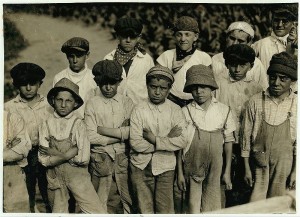
Conventional wisdom is there is a worker shortage in Iowa.
“Companies are really at a tipping point with respect to their workforce,” Iowa Business Council Executive Director Joe Murphy said in an interview with Perry Beeman of Iowa Capitol Dispatch. “They need people more than ever.”
The surge in demand for products and services in the second year of the coronavirus pandemic notwithstanding, there is no shortage of workers. It is a shortage of jobs people want to do.
My colleague Tony Lloyd put it this way: “Can we stop saying that ‘Companies can’t find workers’ and start saying ‘Many corporate work environments are toxic. Workers weren’t thriving before the pandemic. Now they realize that life is short.’ The way you spend your time is the way you spend your life.”
Anyone who worked on a farm knows how hard physical labor can be. Factory workers are well attuned to the toll repetitive tasks take on their bodies. Retail workers figure out ways to eek out a living on low wages. People who are self-employed–housekeepers, landscaping contractors, beauticians and barbers, child care professionals, crafters and creatives–often feel one step from the debt collector with slim chances of making it. We go on working partly because we want to, yet mostly because we need income in 21st Century society.
Labor unions of the post World War II era framed what worklife can be: a 40-hour work week with paid overtime, a safe work place, vacations and holidays, health insurance, sick leave, and other perquisites. About one-quarter of all U.S. workers belonged to a union in the mid-1950s, yet only 10.8% of U.S. workers were union members in 2020. The union membership rate of public-sector workers (34.8 percent) continued to be more than five times higher than the rate of private-sector workers (6.3 percent), according to the Bureau of Labor Statistics. While we are friends of organized labor, their model has not worked for the majority of Americans in the workforce.
Most small, family-run businesses I know seek to avoid hiring people unless they must. Everyone from the owner to the dish washer pitches in to help get required daily work done. Yet small businesses have been and continue to be acquired by larger ones, or are run out of business through market competition.
American business favors a structure where management expenses are minimized, and to do that, scale is important. The bookkeeper for a $1 million dollar a year operation may stay busy, yet the better use of such labor is said to be that same bookkeeper managing a portfolio of ten or twenty such operations. To do that businesses need scale. Scale well-serves the owners of business–the richest one percent among us–but that’s where trouble came in. It was noticed during the pandemic.
Scaling business to reduce overhead costs, and taking the individual decision-making aspect out of operating a small office or outlet within a large corporation is what created the “toxic work environments” to which Lloyd referred. If there is will to do something about it, I don’t see it in public. As we answer the question, “What work will we do?” our options are limited by the corporatization of the United States.
Wouldn’t it be great to work like this:
Oh, I get by with a little help from my friends
Sony Music Publishing or Sir Paul McCartney, who knows?.
Mm, I get high with a little help from my friends
Mm, gonna try with a little help from my friends
Unfortunately, even something as simple as “getting by” gets complicated. How we spend our days is made more difficult by the corporatization of worklife and the increasing divide between the richest people and the rest of us. The question remains unanswered.


